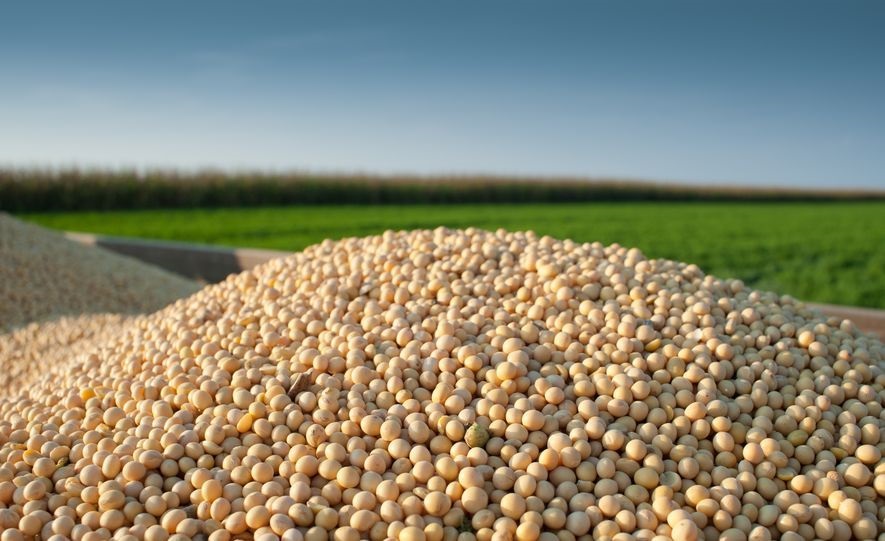Government in new export push
President Lazarus Chakwera’s administration’s move to establish export mandates and create new markets has resulted in a surge in proceeds for non-traditional crops, including soya beans.
But while commending the new government for the policies that are putting more money in poor farmers’ pockets, experts say more needs to be done for the smallscale producers to earn even more.

Developments in the legume sector, however, as evidenced by better prices this year such as soya beans which raked in a record K650 per kilogramme (kg), up from an average K250/K300 per kg in previous years, signal a positive future for legumes in comparison with tobacco.
With the push, soya beans has earned $100 million (about K83 billion) compared to tobacco’s $196 million year, through the export mandate—where no commodity is exported unless it goes through a structured market—other than those currently enjoyed by two commodities: tea and tobacco.
Yohane Dokotala, a farmer from Mitundu in Lilongwe, said he sold his soya beans at K600 per kg from his four and half acres.
He said he sold his soybeans at K270 per kg last year and hoped prices will be sustained or even go higher next year as he has planned to double his production this growing season.

“I can tell you that if the better prices trend continues, life in the village will be wealthier, we will become rich and be able to afford most things that have been beyond our reach,” said Dokotala.
In a statement issued last week, Malawi Investment and Trade Centre (Mitc) board chairperson Karl Chokotho said they received trade inquiries from South Sudan, India, Zimbabwe, Japan, China, Mozambique and Tanzania, among others, for the country’s non-traditional crops such as legumes.
He said the markets are mostly for agricultural products such as soya beans at 69 900 metric tonnes (MT), groundnuts 33 140 MT, beans 97 515 MT, sunflower 13 000 MT, coffee 11 000 MT, tomato 720 MT, Sesame seeds 218 000 MT, and rice 80 000 MT, among others.
Chokotho said: “We cannot quantify how much we will realise from these demanded quantities until deals are sealed because of price fluctuations from one country to another.”
The soya bean yield globally is four tonnes per hectare, but an average products.
Legumes Development Trust manager Sangwani Makoko called for formation of cooperatives as it would be easier to value-add, saying even if farmers produce individually, they should be able to aggregate and sell in groups to earn better prices.
She explained that even if the country overproduces legumes, deliberate policies should be inculcated to scale up value addition at community and national levels.

“To encourage massive legume production, government should consider including legume seeds in the Affordable Inputs Programme, this will ensure economic benefits, apart from achieving food security,” Makoko said.
She said legume value chains, if well supported with better targeted investment, can replace tobacco which is performing poorly.
Agricultural development and policy expert Tamani Nkhono-Mvula on Wednesday agreed with the Legumes Development Trust that to sustain prices, farmers should be in cooperatives to bargain.
He urged local farmer organisations to ensure they secure and sign long-term contracts with external buyers.
He said the trade war between the United States and China, which saw a ban on soybean trade, left China with no option this year but to buy the produce from Africa, including Malawi and other continents.
“We need to have structured markets like what the government is doing to champion trade through export mandates. This is one of the best ways to manage prices, “ Mvula said.
National Working Group on Trade Policy chairperson Frederick Changaya, who is also managing director of Applecore Grain & Milling Limited, said availability of markets remains key to sustainable production and better prices.
He called on government to continue exploring external markets for farmers for non-traditional crops.
Changaya said: “Obviously, prices will collapse with high production, cleverly, government should expand local to external markets. It will be disappointing to raise farmers’ hopes with better prices only to have highly suppressed prices next year, government should plan ahead to sustain the current momentum.”
The Ministry of Trade in a statement said between January and June this year, the country exported 119 621 000 kg of soya beans and K51.6 billion.
This followed steady increase in prices from K320 per kg, to K510 then a jump to K650 per kg.





